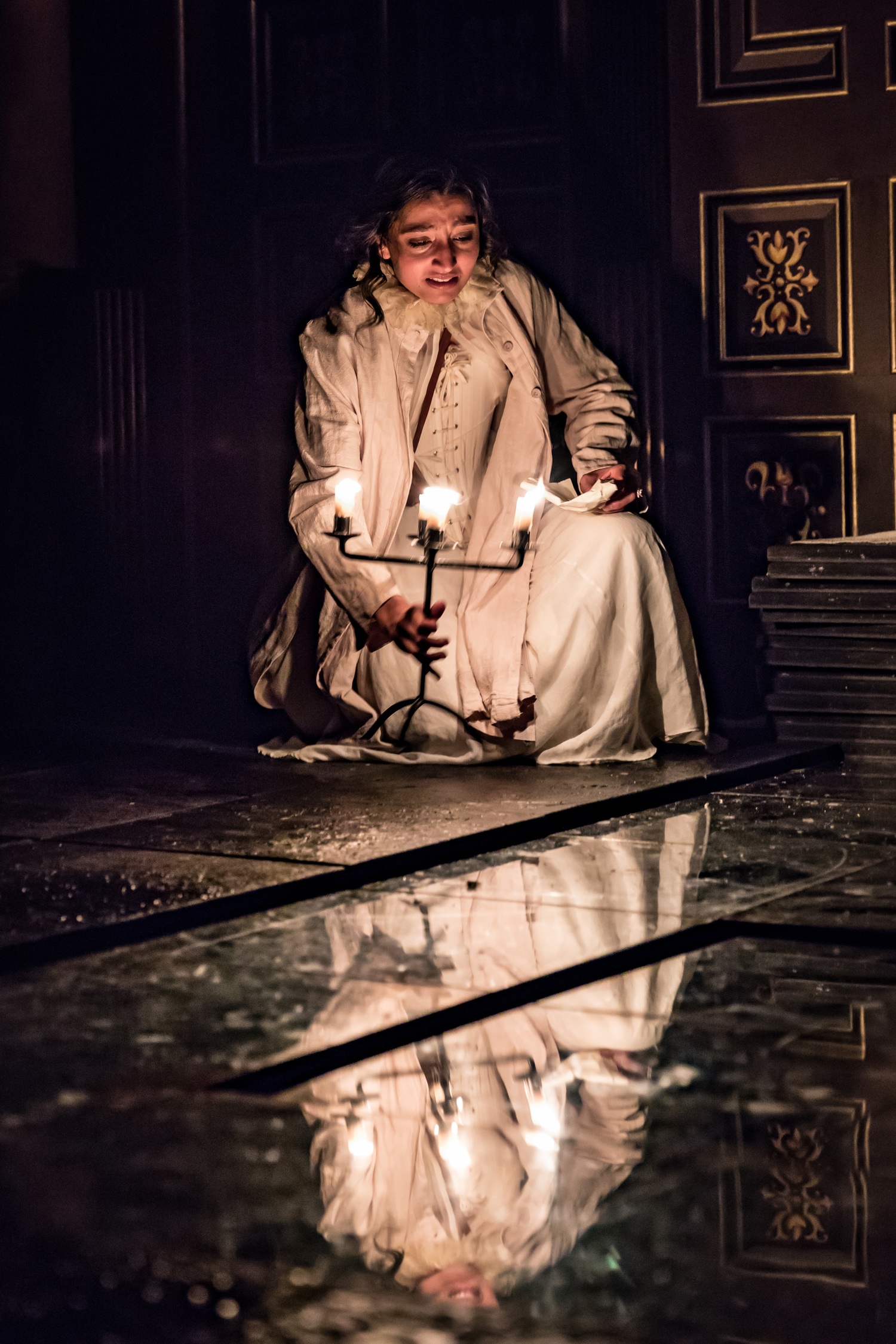Review: ALL'S WELL THAT ENDS WELL, Sam Wanamaker Playhouse

![]() The forthcoming summer programme may have been announced, but The Winter Selection at Shakespeare's Globe continues apace - the latest show to open is the only Shakespeare play in the season, the rarely played All's Well That Ends Well. Caroline Byrne returns to direct, following her Irish production of The Taming of the Shrew at the Globe itself in 2016.
The forthcoming summer programme may have been announced, but The Winter Selection at Shakespeare's Globe continues apace - the latest show to open is the only Shakespeare play in the season, the rarely played All's Well That Ends Well. Caroline Byrne returns to direct, following her Irish production of The Taming of the Shrew at the Globe itself in 2016.
Helena, the ward of the Count and Countess of Rossillion, is in love with their son Bertram. When the Count dies, she follows the object of her affection to the royal court in Paris; the King is gravely ill, so she offers him medical aid (her late father was a doctor).
Despite his doubts, he assents (though not before Helena wagers her life as a guarantee), and grants her the free choice of a husband from his court when he's cured. Bertram is dismayed when she picks him, as he considers her too low-born for him, but the King forces them to wed - immediately afterwards he leaves to fight in Italy, saying that Helena will only be his true wife when she wears his family ring and bears his child. A seemingly impossible task, but he hasn't anticipated Helena's determination...
Labelled as one of Shakespeare's 'problem plays', there is a fine balance between darkness and light that you need to tread; overdoing the comedy undermines the weight of Helena's task, but too much focus on the tragedy threatens to drown out any sense of hope.
By and large I think Byrne's production has got this right. In so doing it has a slight air of modernity about it - whilst retaining a traditional visual, with candlelight and period costumes (Colin Richmond) being employed. Theo Vidgen's compositions add a primal drumbeat and eerie strings to the background.
There's no doubt that the use of candles makes the piece very atmospheric, though the regular movement of large candlestick holders from one spot to another is occasionally distracting; unlike The Secret Theatre there are no moments of pitch-black intensity, and some scenes do suffer from a lack of lighting. The overall design is simple, with an emphasis on black for mourning as the play is shrouded in death.
One aspect I'm really not sure about is the bedding scene, as Bertram, Diana and Helena constantly pop in and out of a suspicious-looking aperture at the back of the stage - it's a slightly awkward moment that becomes unintentionally funny thanks to the rubbery noises made when a limb appears or disappears.
It seems almost inconceivable that Helena could love someone like Bertram, a snob and a bully who humiliates her with his public rejection of her love, but Will Merrick shows the odd glimmer of a better man buried inside - and by the play's conclusion you sense that Bertram has been humbled by his estranged wife's devotion.
In Helena's risk-taking and sheer force of will there is a truly modern heroine, even if her specific goal isn't something we might identify with quite so much nowadays. Ellora Torchia burns brightly as the wronged wife, providing a sense of inner strength that radiates and sustains her through her trials.
Much of the comedy comes from the subplot concerning Bertram's cowardly associate Paroles, a peacock of a man (obsessed with scarves) who Bertram's fellow nobles are certain would betray him at the drop of a hat to save himself. Imogen Doel very nearly steals the show in this role, flirting with audience members and with impeccable comic timing.
Whilst it's not the most gloriously uplifting play, there is something rather beguiling about this production that makes for satisfying and enjoyable viewing - it does exactly what it says on the tin.
All's Well That Ends Well is at the Sam Wanamaker Playhouse until 3 March
Picture credit: Marc Brenner
Reader Reviews

Videos

